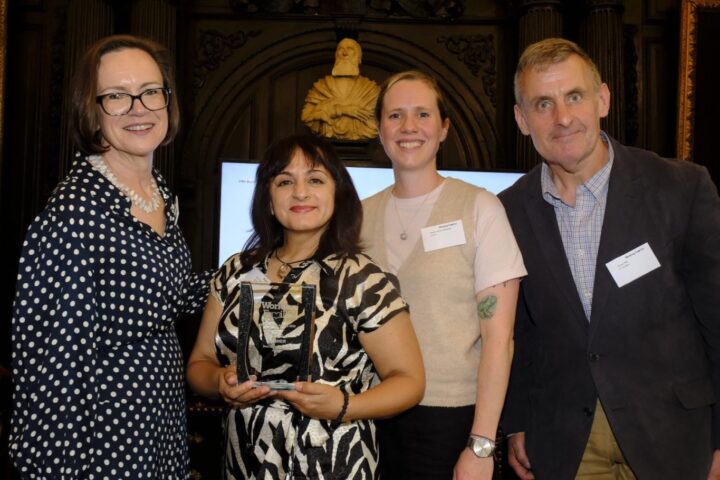Half of neurodivergent adults reported facing discrimination in hiring processes due to their neurodiversity, according to new research released by Zurich UK.
Among the respondents, one in six said they had a job offer rescinded after disclosing their neurodivergent status, while one in five reported being laughed at for their neurodiversity.
Three in ten respondents (31%) shared that disclosing their neurodiversity led to their application being disregarded, while others reported subjective rejections based on communication style or perceived ‘team fit’ (28%).
A further 27% mentioned that comments were made about their abilities, or that they were ‘ghosted’ by recruiters after disclosing their neurodiversity (25%).
Reflecting these challenges, nearly two-thirds (63%) of neurodivergent adults felt that employers viewed neurodiversity as a ‘red flag’ rather than a strength, with almost half (47%) feeling they could not or should not disclose their neurodiversity during the hiring process.
Fears of stigma also discouraged disclosure, with 51% of respondents worried it would hurt their chances of employment, 42% concerned about discrimination, and 41% fearing that disclosure would lead to unfair assumptions about their abilities.
The findings, gathered from a survey of 1,000 neurodivergent UK adults, represented around six million UK adults in the workforce.
Zurich UK’s research also revealed that traditional recruitment formats negatively impacted neurodivergent candidates, with more than half (54%) feeling that current hiring processes were designed to ‘weed out’ neurodivergent people rather than evaluate their skills.
According to the Buckland Review of Autism Employment, neurodivergent candidates face numerous barriers due to job applications and interview formats often designed with neurotypical individuals in mind.
Over a third of neurodivergent job seekers (37%) reported experiencing panic in interviews due to overly complex questions.
Other significant barriers included long and elaborate application forms (26%), vague job descriptions (24%), timed tasks (23%), group assessment settings (22%), and pre-prepared presentation tasks (17%).
Nearly all respondents (92%) said these barriers had negatively impacted their earning potential, while others cited reduced confidence (96%), mental health (95%), and self-promotion abilities (93%).
Marc Crawley, director at Diversita, said: “In my experience, one of the biggest barriers to employment for neurodivergent candidates is the traditional way in which companies approach recruitment.
“With one in seven adults identifying as neurodivergent, interview formats that are designed predominately for neurotypical applicants potentially exclude a huge amount of the job market.
“Most candidates we work with are autistic, dyslexic or have ADHD, however approximately 40% of our candidates have multiple neuro-types – this co-occurrence is really interesting and can bring a variety of complementary strengths such as diverse perspectives, increased productivity and creativity, and all contribute to a positive workplace culture.
“It doesn’t take much to consider how to make recruitment processes neuroinclusive and unlock the potential of neurodivergent talent – in short, it comes from a lack of awareness and understanding.
“The job market for now is way behind the curve but every day we see progress from companies that embrace neurodivergent talent, and these companies will be the beneficiaries.”
Despite these findings, the research showed some positive shifts: six in ten neurodivergent adults (63%) believed the workplace environment had improved, and more than half (55%) felt it was now easier to disclose neurodiversity than in the past.
Zurich UK, in response to these findings, announced several initiatives to support neurodivergent employees, including offering free neurodiversity assessments for employees, their children, and partners from January 2025.
Additionally, Zurich rolled out autism awareness training for hiring managers and employees, developed sensory maps for their workplaces, removed subjective language from job descriptions, and implemented recommendations from The Buckland Review of Autism Employment to ensure neuroinclusive hiring practices.
Steve Collinson, chief HR Officer at Zurich, said: “With over half of neurodivergent adults experiencing discrimination and two thirds saying employers see their neurodiversity as a ‘red flag’, it’s clear there is still a way to go when it comes to creating neuroinclusive workplaces.
“Our research shows that traditional recruitment processes are creating unnecessary barriers for these candidates and could be excluding as much as 15% of the job market, which is why it’s so important that employers adopt inclusive practices at hiring level – not just to already onboarded employees.
“At Zurich we aim to create a workplace that gives the widest representation of our customers – to run a business effectively you need the widest range of diversity in your teams, and this includes neurodiversity.
“To help us achieve this, we’ve introduced a range of practices to support our neurodivergent employees and are delighted to be introducing neurodiversity assessments to help others get the help and support they need.”

















